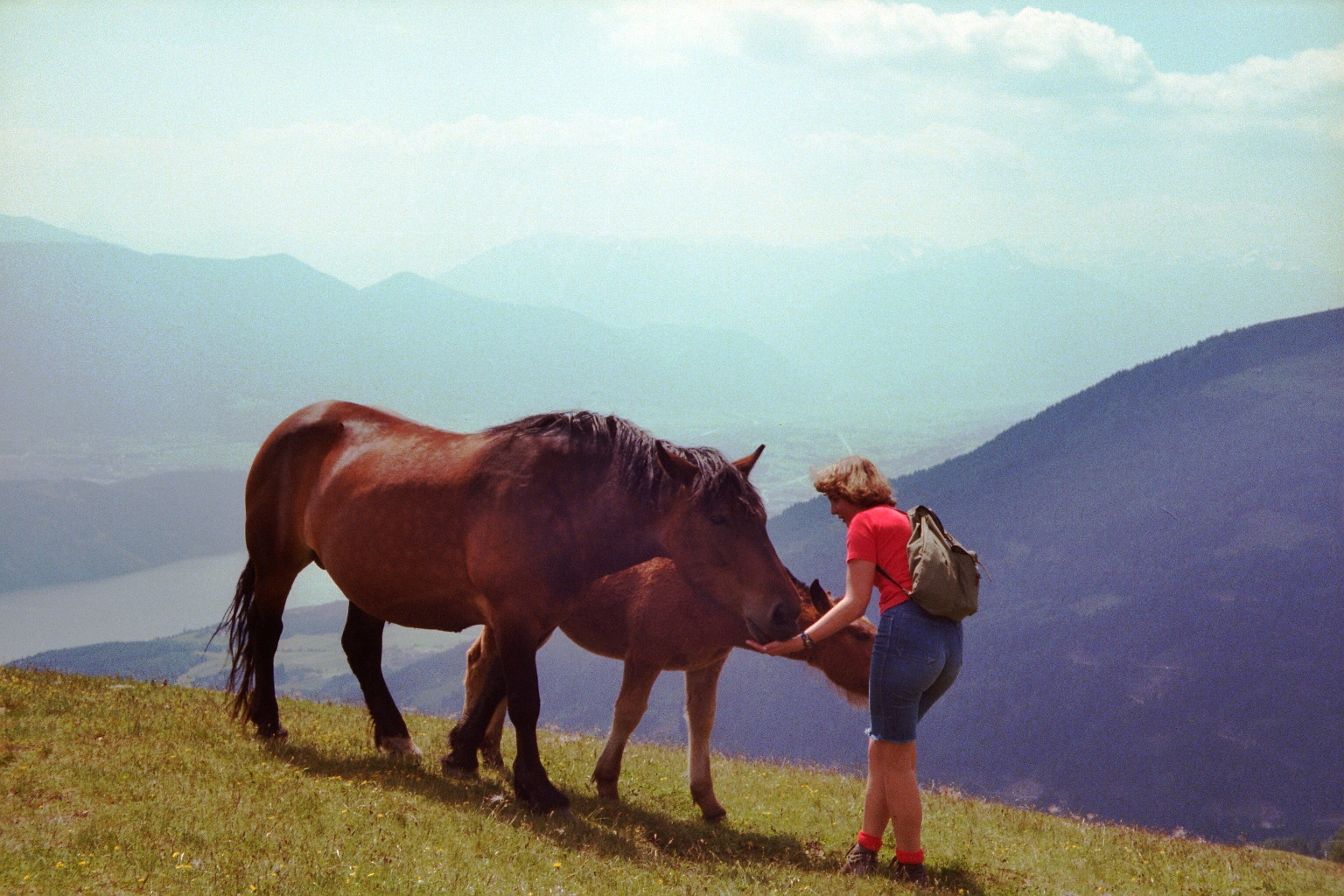QUIDDITCH
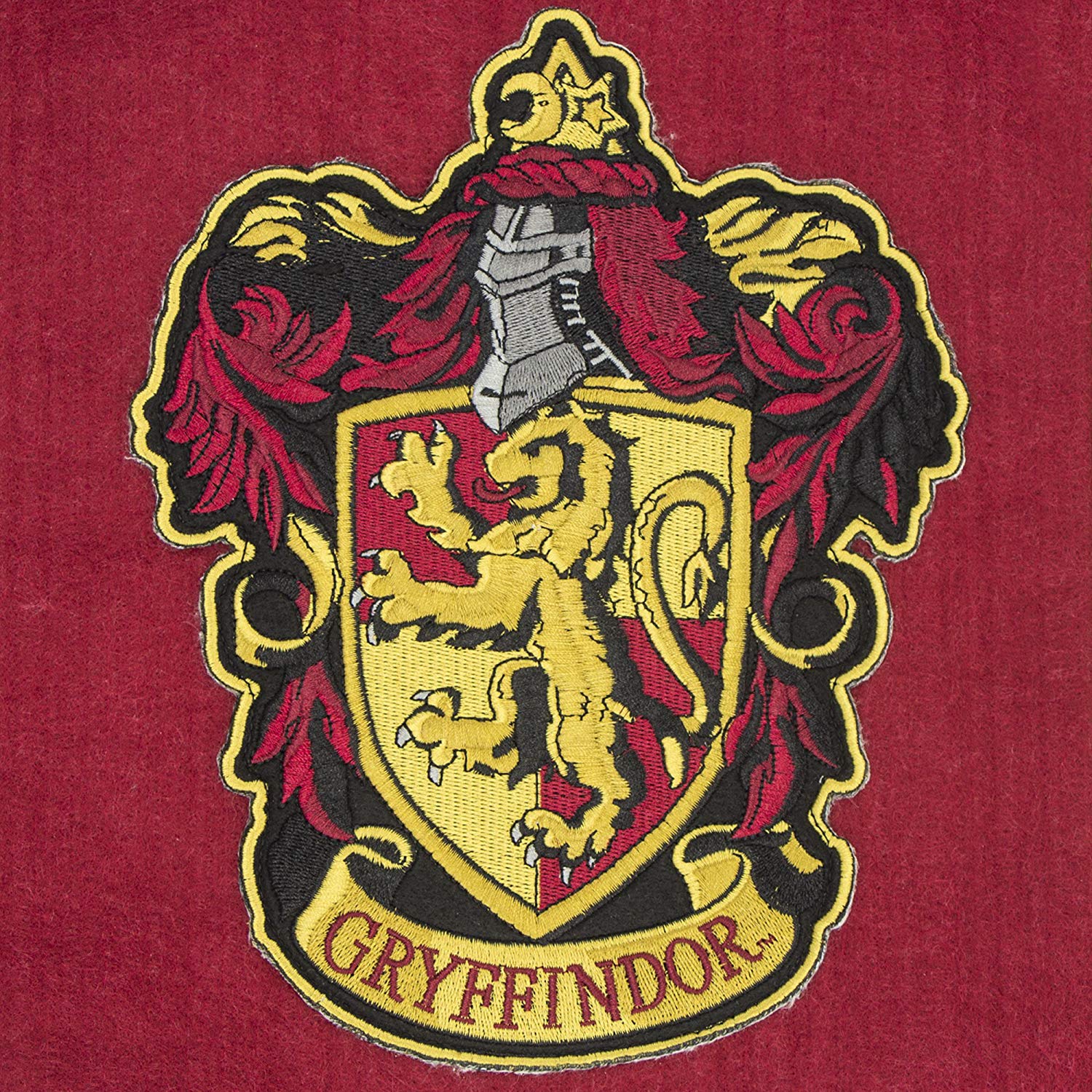

First things first (though I'm not the first here to post about this) -- as a proud Gryffindor, I obviously support my house team ... and I salute my fellow Gryffindors Darth Pony and XOX.
I've been able to verify that the house's last victory of the Hogwarts Inter-House Cup took place in the 1996-1997 season. They also had a solid winning run in the seasons prior to that one, winning the cup both in 1993-1994 and 1995-1996 (in 1994-1995, the Inter-House Cup tournament was replaced by the Triwizard Tournament).
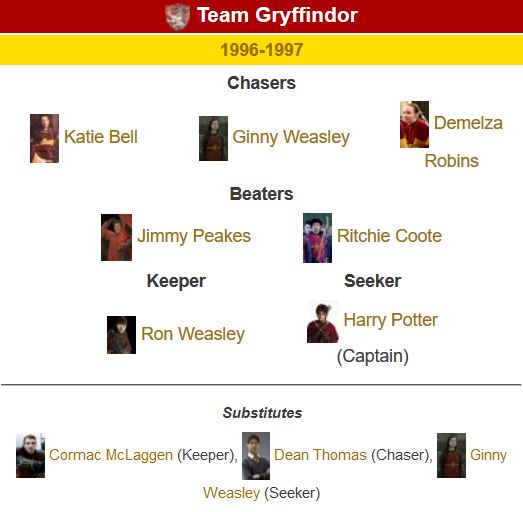

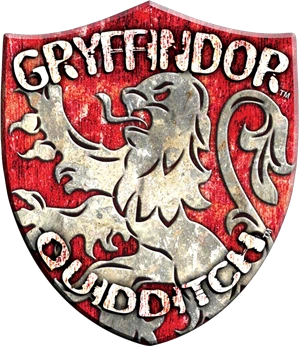

That said, outside the wizarding world and in no particular order:
FOOTBALL / SOCCER

Borussia Dortmund
Most recent successes:
German national cup (DFB-Pokal) winners: 2017
German national league (Bundesliga) champions: 2012
-- also national cup (DFB-Pokal) winners that same year
German supercup winners: 2014
UEFA Champions League winners: 1997
(finalists last time in 2013)
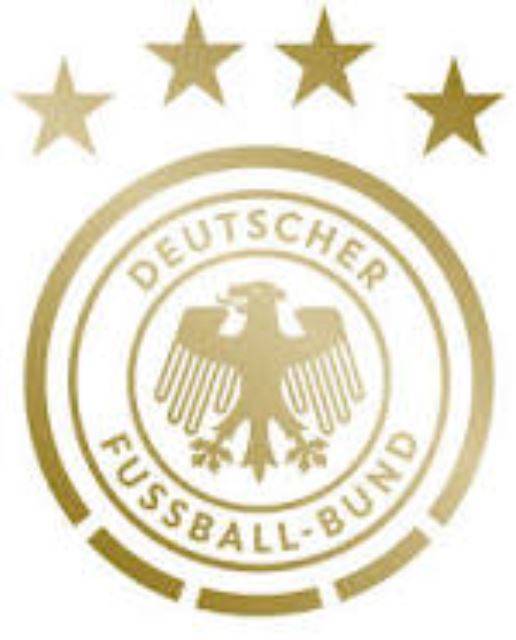 German National Team - Men
German National Team - Men
Gosh, am I glad this task is asking about the team's successes ... let's just forget about 2018, shall we?! So:
Most recent successes:
World champions: 2014
(4th time total)
European champions: 1996
(semi-finalists 2012 and 2016)
Confederation Cup winners: 2017
 German National Team - Women
German National Team - Women
Most recent successes:
World Champions: 2007 and 2003
Olympic Champions: 2016
-- also 3 Olympic bronze medals (2000, 2004, and 2008)
European Champions: 2013
(8th time total)

... and a few competitions where team and individual events are equally important, and where the individual competitors are drawn from the ranks of the team:
HORSEBACK RIDING


German National Equestrian Team
Most recent successes:

Olympic Games:
* GOLD MEDALS: 2016 team dressage; 2012 team eventing***; 2016 and 2012 eventing individual - Michael Jung / Sam
* SILVER MEDALS: 2016 team eventing; 2012 team dressage; 2016 dressage individual - Isabell Werth / Weihegold
* BRONZE MEDALS: 2016 team show jumping; 2016 dressage individual - Kristina Bröring-Sprehe / Desperados; 2012 eventing individual - Sandra Auffarth / Opgun Louvo
Overall, in 104 years (1912 - 2016), with 41 gold, 23 silver and 27 bronze medals the most successful equestrian team in the history of the Olympic games.

World Equestrian Games:
* GOLD MEDALS: 2018 and 2014 team dressage; 2014 team eventing
-- Plus individual team members:
2018 dressage, Grand Prix Special (no dressage freestyle competition in 2018) - Isabell Werth / Bella Rose; 2018 show jumping - Simone Blum / Alice; 2014 eventing - Sandra Auffarth / Opgun Louvo
* SILVER MEDALS: 2014 dressage, Grand Prix Special and 2014 dressage, freestyle - Helen Langehanenberg / Damon Hill (both); 2014 eventing - Michael Jung / Rocana
* BRONZE MEDALS: 2018 team show jumping
-- Plus individual team members:
2018 eventing - Ingrid Klimke / Hale Bob; 2014 dressage, Grand Prix Special - Kristina Sprehe / Desperados

European Championships:
* GOLD MEDALS: 2017 and 2013 team dressage; 2015 and 2013 team eventing
-- Plus individual team members:
2017 dressage, Grand Prix Special and 2017 dressage, freestyle - Isabell Werth / Weihegold (both); 2017 eventing - Ingrid Klimke / Hale Bob; 2015 eventing - Michael Jung / Takinou; 2013 eventing - Michael Jung / Halunke
* SILVER MEDALS: 2015 and 2013 team show jumping
-- Plus individual team members:
2017 dressage, Grand Prix Special and 2017 dressage, freestyle - Sönke Rothenberger / Cosmo (both); 2017 eventing - Michael Jung / Rocana; 2015 dressage, Grand Prix Special and 2015 dressage, freestyle - Kristina Bröring-Sprehe / Desperados (both); 2015 eventing - Sandra Auffarth / Opgun Louvo; 2013 dressage, Grand Prix Special and 2013 dressage, freestyle - Helen Langehanenberg / Damon Hill (both); 2013 eventing - Ingrid Klimke / Escada
* BRONZE MEDAL: 2015 team dressage
(Can ya' tell I'm kinda vicariously proud of the German equestrian team?)
*** Eventing is a three-day competition formerly known as "military," which combines a cross country parcours on day 1 with a dressage and a show jumping competition on days 2 and 3.
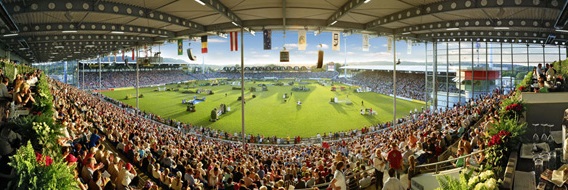
NORDIC SPORTS
My mom first took me skiing before I'd even started school, so winter sports are a big, lifelong favorite of mine ... even though my own skiing days are unfortunately over, as a result of a completely messed-up bone structure in my feet, which has made skiing boots the equivalent of Spanish torture boots to me ever since I was in my early 30s.
Downhill skiing races are events dominated by individual, not team competitions, of course, so I won't include those here and only note that they're still one of my all-time favorite competitions to watch, ever. That said, in recent years I've also become a big fan of the Nordic competitions, where team events have always played an important role ... and where, go figure, it turns out the German national teams are actually doing pretty well.
All German Nordic sports teams are united (together with the downhill skiers) in the German Skiing Association (Deutscher Skiverband).

BIATHLON
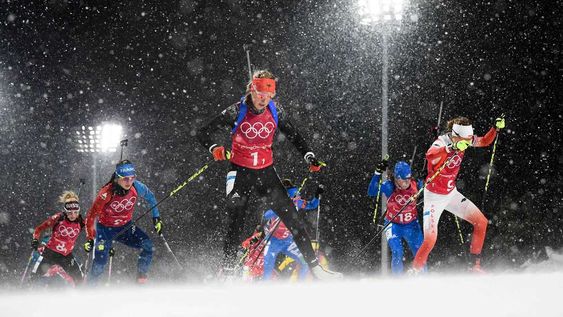
Biathlon evolved from Nordic ski hunting; it combines cross country ski racing and target shooting (and is, incidentally, the only context in which I can countenance the use of guns, because here the focus is entirely on a civilian competition hinging on the athletes' fine motor skills -- with bodily control made decidedly more difficult by the fact that they've got several kms of cross country ski racing in their bones by the time they get to the shooting arena -- and gun safety is taken extremely seriously). I find it spellbinding, not only because it requires proficiency in two vastly different skill sets, but also because even after a race lasting anywhere from 7.5 to 20 km (4.7 to 12 miles), the outcome frequently turns on a single failed shot -- or mere fractions of seconds of running time.
Most recent successes:

Olympic Games
* GOLD MEDALS: 2018 sprint, women and 2018 pursuit, women - Laura Dahlmeier; 2018 sprint, men - Arnd Peiffer
* SILVER MEDALS: 2014 team relay, men; 2018 mass start, men - Simon Schemp; 2014 individual race, men - Erik Lesser
* BRONZE MEDALS: 2018 team relay, men; 2018 individual race, women - Laura Dahlmeier; 2018 pursuit, men - Benedikt Doll
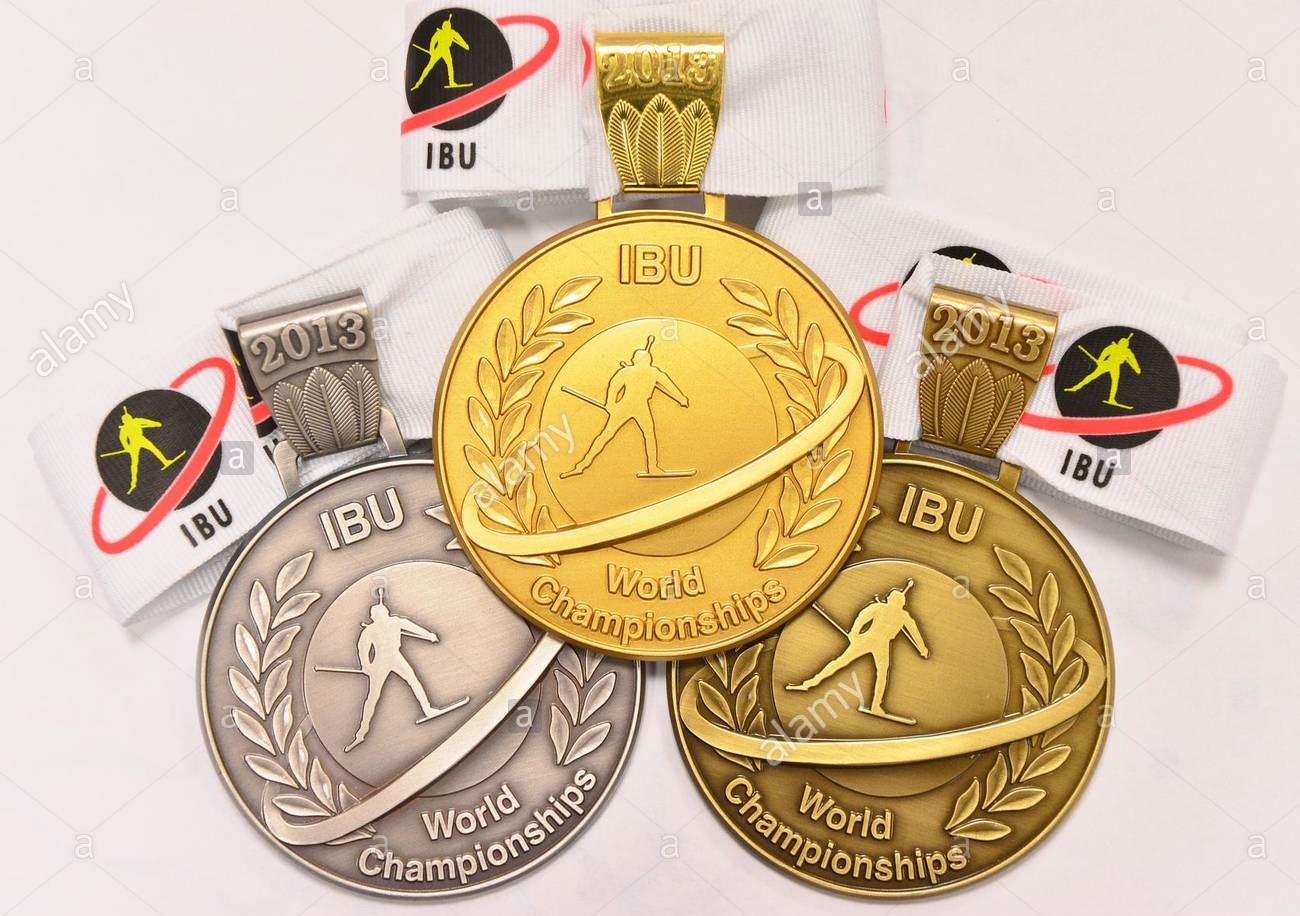
World Championships
* GOLD MEDALS: 2017 mixed (= 2 men, 2 women) team relay; 2017 and 2015 team relay, women; 2015 team relay, men
* SILVER MEDALS: 2016 mixed team relay; 2016 team relay, men
* BRONZE MEDAL: 2016 team relay, women
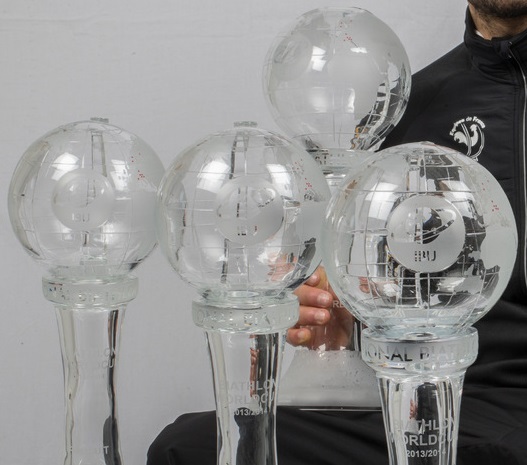
Biathlon World Cup
(= one entire season's worth of events)
- 2017-18 SEASON: best team women (all events, aggregate); best relay team, women; third best team men (all events, aggregate)
- 2016-17 SEASON: best team women (all events, aggregate); best relay team, women; best team men (all events, aggregate), best mixed relay team
- 2015-16 SEASON: best team women (all events, aggregate); best relay team, women; second best team, men (all events, aggregate); second best mixed relay team
- 2014-15 SEASON: best team women (all events, aggregate); second best relay team, women; second best team, men (all events, aggregate)
- 2013-14 SEASON: best relay team, women; third best team men (all events, aggregate); best relay team, men
... plus a host of world championship medals as well as world cup race and seasonal victories won by the individual team members in their solo races.
With 23 Olympic gold, 27 silver and 18 bronze medals since 1960, when biathlon first became an Olympic sport, as of 2018 the German national team is the most successful Olympic biathlon team (surprisingly even more successful than Norway, where the sport originated). Ditto in the world championship rankings since the first biathlon world championships in 1958 (82 gold, 57 silver and 47 bronze medals).

SKI JUMPING

I admire the sheer chutzpah of these guys ... and ladies (!); even more so, after having myself stood at the tops of the Oberstdorf and Calgary jumps and looked down. It's a truly awe-inspiring view: in and of itself, but even more so if you consider that by the time you reach the bottom of the jump -- by which time my heart would have dropped to somewhere in the vicinity of my feet -- you're not actually done but you're propelled into free flight for another 100 - 230+ meters (330 - 755+ ft), depending on the hill size,*** during which you're sustained in the air by nothing other than your own skill, technique and body (and a bit of headwind if you're lucky), and you're supposed to land gracefully when gravitation ultimately gets the better of you after all.
*** "Normal hill" => results in the 100 m (330 ft) range
"Large hill" (men only) => results in the 125 - 140 m (410 - 460 ft) range
"Ski flying" (men only) => results in the 200+ m (650+ ft) range
Most recent successes:

Olympic Games
* GOLD MEDALS: 2014 large hill, team (men); 2014 normal hill, women / individual - Carina Vogt; 2018 normal hill, men / indiviual - Andreas Wellinger
* SILVER MEDALS: 2018 large hill, team (men); 2018 normal hill, women / individual - Katharina Althaus; 2018 large hill / individual - Andreas Wellinger

Ski Jumping World Championships:
* GOLD MEDALS: 2017 and 2015 normal hill, mixed team; 2015 large hill, men / individual - Severin Freund; 2017 and 2015 normal hill, women / individual - Carina Vogt
* SILVER MEDALS: 2013 large hill, team (men); 2017 large hill, men / individual and 2017 normal hill, men / individual - Andreas Wellinger; 2015 normal hill, men / individual - Severin Freund
* BRONZE MEDALS: 2013 normal hill, mixed team; 2017 normal hill, men / individual - Markus Eisenbichler

Ski Flying World Championships
* GOLD MEDAL: 2014 team
* SILVER MEDAL: 2016 team
* BRONZE MEDAL: 2018 individual - Richard Freitag

Ski Jumping World Cup
(= one entire season's worth of events)
- 2017-18 SEASON: second best, individual (all events, aggregate) - Richard Freitag
- 2016-17 SEASON: second best, ski flying / individual - Andreas Wellinger; 3d place, Raw Air 2017 - Andreas Wellinger
- 2015-16 SEASON: second best, individual (all events, aggregate) - Severin Freund
- 2014-15 SEASON: best team (all events, aggregate); best individual (all events, aggregate) - Severin Freund

NORDIC COMBINED
The so-called "royal" or "crowning" Nordic event, consisting of the two most traditional of all Nordic sports, ski jumping and cross country skiing. I'm not a major fan of cross country skiing as such, but the jump at the beginning of the competition -- and the combination of the two things -- adds a considerable amount of spice, as this event, too, requires proficiency in two different kinds of skill sets ... and although the results of the jumping competition are "translated" into time handicaps (the shorter your jump, the more your start into the cross country race will lag behind the start of the winner of the jumping competition), it's by no means certain that the ski jumping winner will also win the competition overall: in fact, a top Nordic combined athlete may well win despite going into the cross country race with a time lag / handicap of a minute or more.
The members of the German team managed "clean sweeps" (securing all 3 medals) in the 2018 Olympic large hill / 10 km individual and the 2017 World Championship normal hill / 10 km individual races.
Overall, with 11 gold, 6 silver and 9 bronze medals, they're the second most successful Nordic combined team (after Norway) in Olympic history; ditto in World Championship history (21 gold, 17 silver and 13 bronze medals). In addition, 3 German athletes (Johannes Rydzek, Eric Frenzel and Ronny Ackermann) rank as nos. 1, 3 and 5 in the list of the all-time most successful Nordic Combined athletes.
However, as women have only recently (and much belatedly) been admitted to ski jumping competitions, it may be a while yet until we'll be seeing the first major Nordic Combined women's events; for the time being, this is unfortunately one of the last remaining "men only" sports events.
Most recent successes:

Olympic Games
* GOLD MEDALS: 2018 large hill / 4x5 km, team; 2018 large hill / 10 km individual - Johannes Rydzek; 2018 and 2014 normal hill / 10 km individual - Eric Frenzel
* SILVER MEDALS: 2014 large hill / 4x5 km, team; 2018 large hill / 10 km individual - Fabian Rießle
* BRONZE MEDALS: 2018 large hill / 10 km individual - Eric Frenzel; 2014 large hill / 10 km individual - Fabian Rießle

World Championships
* GOLD MEDALS: 2017 large hill / 2x7.5 km team sprint; 2017 and 2015 normal hill / 4x5 km, team; 2017 large hill / 10 km individual - Johannes Rydzek; 2017 and 2015 normal hill / 10 km individual - Johannes Rydzek; 2013 large hill / 10 km individual - Eric Frenzel
* SILVER MEDALS: 2015 large hill / 2x7.5 km team sprint; 2017 normal hill / 10 km individual - Eric Frenzel
* BRONZE MEDALS: 2013 large hill / 2x7.5 km team sprint; 2017 and 2013 normal hill / 10 km individual - Björn Kircheisen; 2015 large hill / 10 km individual - Johannes Rydzek

Nordic Combined World Cup
(= one entire season's worth of events)
- 2017-18 SEASON: third best individual (all events, aggregate) - Fabian Rießle
- 2016-17 SEASON: best team (all events, aggregate); best individual (all events, aggregate) - Eric Frenzel; second best individual (all events, aggregate) - Johannes Rydzek
- 2015-16 SEASON: best team (all events, aggregate); best individual (all events, aggregate) - Eric Frenzel; third best individual (all events, aggregate) - Fabian Rießle
- 2014-15 SEASON: best team (all events, aggregate); best individual (all events, aggregate) - Eric Frenzel; third best individual (all events, aggregate) - Johannes Rydzek
- 2013-14 SEASON: best team (all events, aggregate); best individual (all events, aggregate) - Eric Frenzel; second best individual (all events, aggregate) - Johannes Rydzek
- 2012-13 SEASON: best team (all events, aggregate); best individual (all events, aggregate) - Eric Frenzel



 Log in with Facebook
Log in with Facebook 


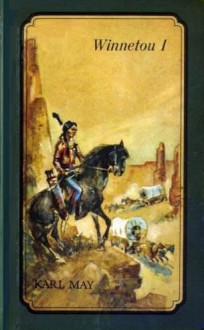
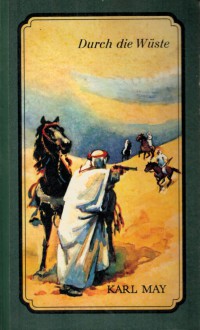

 Tasks for Dies Natalis Solis Invicti: Find the sunniest spot in your home, that’s warm and comfy and read your book. –OR– Take a picture of your garden, or a local garden/green space in the sun (even if the ground is under snow). If you’re in the Southern Hemisphere, take a picture of your local scenic spot, park, or beach, on a sunny day. –OR– The Romans believed that the sun god rode across the sky in a chariot drawn by fiery steeds. Have you ever been horseback riding, or did you otherwise have significant encounters with horses? As a child, which were your favorite books involving horses?
Tasks for Dies Natalis Solis Invicti: Find the sunniest spot in your home, that’s warm and comfy and read your book. –OR– Take a picture of your garden, or a local garden/green space in the sun (even if the ground is under snow). If you’re in the Southern Hemisphere, take a picture of your local scenic spot, park, or beach, on a sunny day. –OR– The Romans believed that the sun god rode across the sky in a chariot drawn by fiery steeds. Have you ever been horseback riding, or did you otherwise have significant encounters with horses? As a child, which were your favorite books involving horses?
